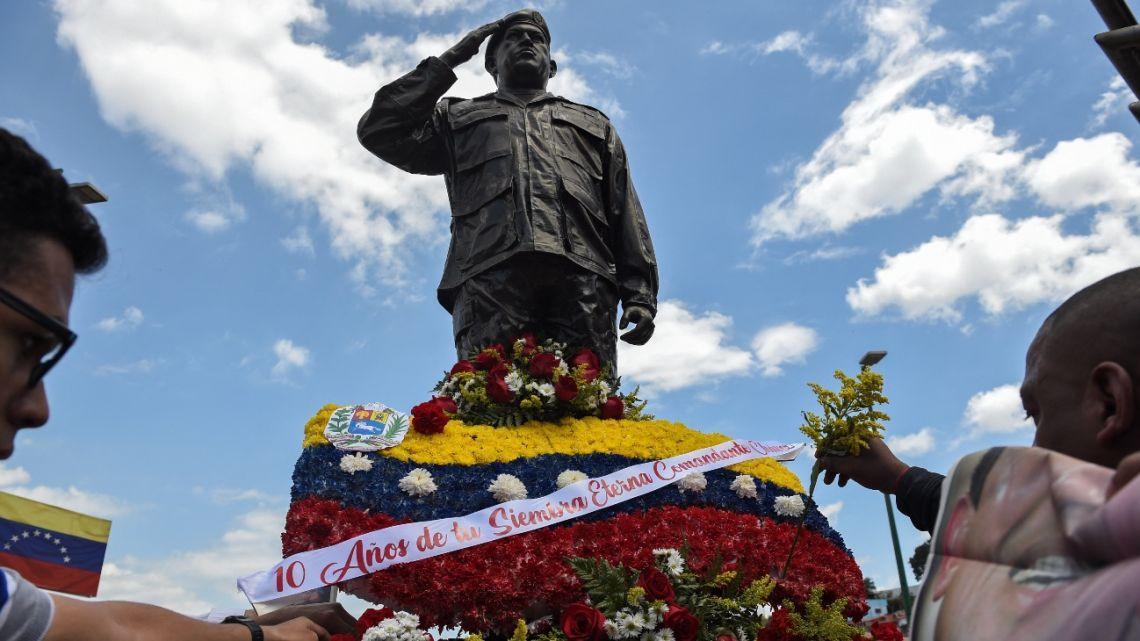
Sanctions imposed by the United States on Venezuela have provoked crises three times more severe than those witnessed during the Great Depression, a Washington Post study found.
As the United States deepens the economic punishment of Venezuela, while the European Commission continues levying sanctions as part of its foreign policy, the Latin American nation is forced into a “perpetual economic war.”
The authors of the study, Jeff Stein and Federica Cocco, detailed that the US administration imposes three times more sanctions on overseas countries than any other nation, international organization, or coalition. The forced economic punishment impacts one-third of the globe’s nations.
The study further focused on US sanctions on Venezuela, imposed during Donald Trump’s presidency in 2017 until 2021. The purpose was to undermine Nicolas Maduro’s leadership and empower the opposition, an objective that not only failed but also garnered a wave of backlash for triggering one of the worst peacetime economic crises in modern history.
Drawing comparisons to other countries where the US clawed its sanctions, such as Syria, the DPRK, Cuba, and Iran, the authors note that sanctions did not achieve the desired political objectives, but their impact was manifested in humanitarian punishment.
Officials within the US government warned of the consequences of sanctions or their excessive usage. However, the Biden administration continued utilizing sanctions as a political tool and imposed over 6,000 sanctions in two years, distributed on Russia and several other global targets.
How the US exploits its global influence to punish rivals
The Washington Post‘s analysis underscores the intricate power and dependency relationships within the modern global financial system, where the US dollar holds a central and decisive role.
It emphasizes that the US Treasury Department, which oversees the regulation of the country’s financial system, has effectively become the “guardian of global banking operations.” This position grants the United States considerable influence over international financial transactions.
The study lastly asserts that while sanctions are a significant instrument of US foreign policy, their consequences and humanitarian impacts are undeniable. Wally Adeyemo, the Undersecretary of the Treasury, is quoted in the article as saying that sanctions “are an important tool to help promote national security, but they should only be used as part of a broader foreign policy strategy.”
In this context, journalist Jeff Stein, in an article published on July 26, noted that former President Donald Trump was cautioned that severe sanctions against Venezuela could accelerate an exodus of millions of migrants to neighboring nations, according to three current and former US government officials.
Despite these warnings, Trump proceeded to impose some of the harshest economic sanctions in American history on Venezuela.
Sanctions regime undermines electoral system
Immediately after the election results were declared in Venezuela riots ensued by far right supporters of the opposition.
Venezuelan President Nicolas Maduro declared on that there was an attempt “to impose in Venezuela a coup d’etat,” following the opposition’s rejection of his reelection for a six-year term.
“Defeating fascism and its demons is a historic feat and our people have done it!” Maduro stated after being declared the victor. He denounced the Venezuelan far-right attempt at a “fascist coup,” futher stating that “they are trying to impose in Venezuela a coup d’etat again of fascist and counterrevolutionary character.”
The election cannot be treated fair, in any way, due to the fact that the population is voting while being starved and strangled by US imperialism. The entire process is coercive, so the maintenence of an alternative, objectively takes precedent over bourgeois norms of political theater.